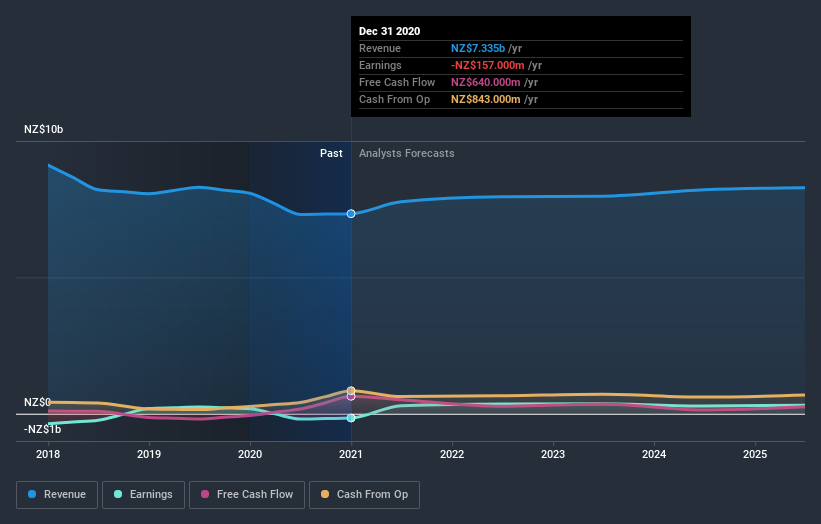What Does Fletcher Building Limited's (NZSE:FBU) Share Price Indicate?
Fletcher Building Limited (NZSE:FBU), might not be a large cap stock, but it led the NZSE gainers with a relatively large price hike in the past couple of weeks. With many analysts covering the mid-cap stock, we may expect any price-sensitive announcements have already been factored into the stock’s share price. However, what if the stock is still a bargain? Let’s take a look at Fletcher Building’s outlook and value based on the most recent financial data to see if the opportunity still exists.
View our latest analysis for Fletcher Building
What is Fletcher Building worth?
According to my valuation model, the stock is currently overvalued by about 34%, trading at NZ$7.01 compared to my intrinsic value of NZ$5.22. Not the best news for investors looking to buy! But, is there another opportunity to buy low in the future? Given that Fletcher Building’s share is fairly volatile (i.e. its price movements are magnified relative to the rest of the market) this could mean the price can sink lower, giving us another chance to buy in the future. This is based on its high beta, which is a good indicator for share price volatility.
What does the future of Fletcher Building look like?
Investors looking for growth in their portfolio may want to consider the prospects of a company before buying its shares. Buying a great company with a robust outlook at a cheap price is always a good investment, so let’s also take a look at the company's future expectations. Fletcher Building's revenue growth are expected to be in the teens in the upcoming years, indicating a solid future ahead. Unless expenses grow at the same level, or higher, this top-line growth should lead to robust cash flows, feeding into a higher share value.
What this means for you:
Are you a shareholder? It seems like the market has well and truly priced in FBU’s positive outlook, with shares trading above its fair value. At this current price, shareholders may be asking a different question – should I sell? If you believe FBU should trade below its current price, selling high and buying it back up again when its price falls towards its real value can be profitable. But before you make this decision, take a look at whether its fundamentals have changed.
Are you a potential investor? If you’ve been keeping tabs on FBU for some time, now may not be the best time to enter into the stock. The price has surpassed its true value, which means there’s no upside from mispricing. However, the positive outlook is encouraging for FBU, which means it’s worth diving deeper into other factors in order to take advantage of the next price drop.
If you want to dive deeper into Fletcher Building, you'd also look into what risks it is currently facing. For example, we've discovered 1 warning sign that you should run your eye over to get a better picture of Fletcher Building.
If you are no longer interested in Fletcher Building, you can use our free platform to see our list of over 50 other stocks with a high growth potential.
This article by Simply Wall St is general in nature. It does not constitute a recommendation to buy or sell any stock, and does not take account of your objectives, or your financial situation. We aim to bring you long-term focused analysis driven by fundamental data. Note that our analysis may not factor in the latest price-sensitive company announcements or qualitative material. Simply Wall St has no position in any stocks mentioned.
Have feedback on this article? Concerned about the content? Get in touch with us directly. Alternatively, email editorial-team (at) simplywallst.com.

 Yahoo Finance
Yahoo Finance 
